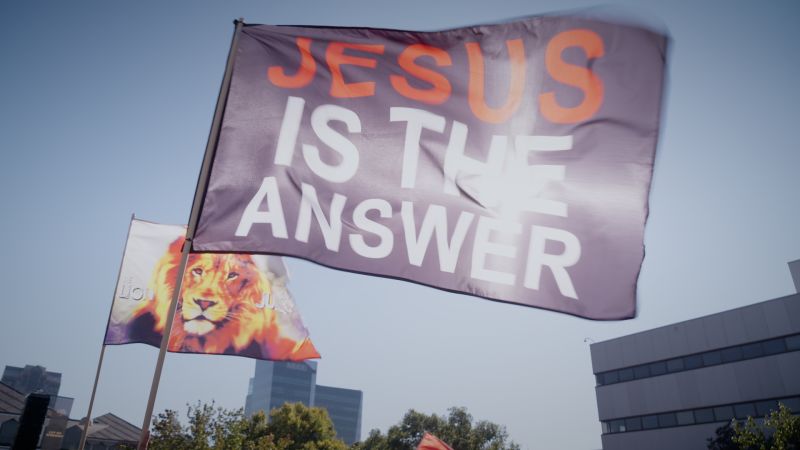Sean Feucht, a preacher and Christian singer, is traveling across the country spreading a message that aligns Christianity with support for President Donald Trump. Feucht believes that Trump is a form of “divine intervention” who will restore America’s morals. This message has gained traction among some Christian supporters who see Trump as a defender of their values and beliefs. Feucht’s efforts highlight the strong connection between certain segments of the Christian community and the Trump administration.
However, not everyone in the Christian community is on board with this message. Pastor Ben Marsh, interviewed by CNN’s Donie O’Sullivan, expresses concerns about the rise of Christian nationalism associated with Trump’s presidency. Marsh worries that aligning Christianity too closely with a political figure like Trump can lead to the distortion of the faith and its values. He believes that focusing too much on political power and influence could cause Christians to lose sight of their true mission and purpose.
The debate over the relationship between Christianity and Trump reflects broader divisions within the country over issues of morality, values, and political leadership. Some see Trump as a champion of traditional values and a bulwark against what they perceive as the erosion of American morals. Others view him as a polarizing and divisive figure whose behavior and policies go against the teachings of Christianity. The clash of these perspectives has created a heated and contentious atmosphere in which different factions within the Christian community are pitted against each other.
The support for Trump among some Christians is driven by a belief that he is the key to preserving their way of life and protecting their freedoms. They see him as a defender against what they perceive as a growing secular and liberal influence in American society. Trump’s promises to uphold religious liberties and appoint conservative judges have endeared him to many Christians who feel threatened by cultural shifts that challenge their beliefs. For these supporters, aligning with Trump is a way to ensure that their values are upheld and respected in a changing and increasingly diverse society.
Critics of the Christian support for Trump argue that it compromises the principles of the faith and undermines the credibility of the church. They point to Trump’s personal behavior, including multiple marriages and allegations of sexual misconduct, as evidence that he does not embody Christian values. They also argue that his policies on issues such as immigration, healthcare, and the environment are not in line with the teachings of compassion, justice, and stewardship that are central to Christianity. This ethical and theological divide has led to significant tension within the Christian community and raised questions about the role of religion in shaping political beliefs.
In the midst of this debate, it is clear that the intersection of religion and politics remains a contentious and complex issue in American society. The relationship between Christianity and Trump has sparked intense debate and soul-searching within the Christian community, as believers grapple with how to reconcile their faith with their political allegiances. As the country continues to grapple with deep divisions and fundamental questions about its values and identity, the role of religion in shaping these debates will remain a central and contentious point of discussion.


